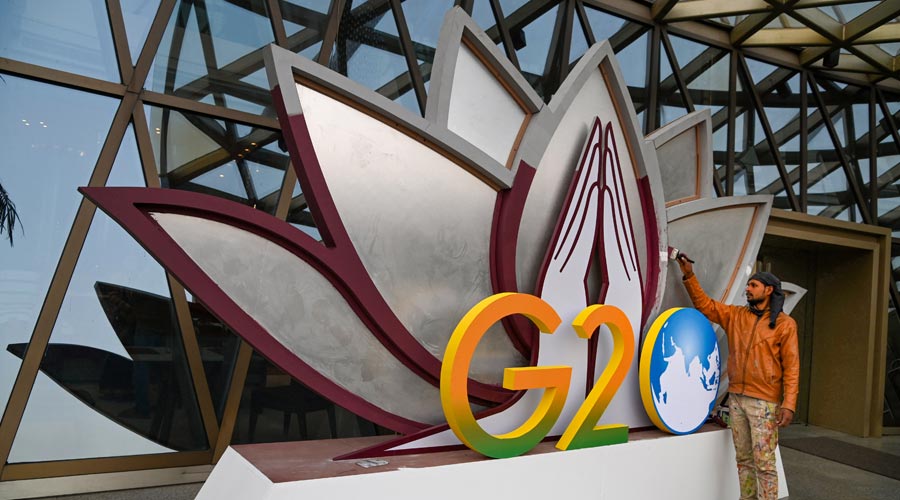Later this week, New Delhi will simultaneously host guests who would rather not be seen in the same room: the US secretary of state, Antony Blinken, his Western counterparts, and the Russian foreign minister, Sergey Lavrov. They will be attending a meeting of foreign ministers of the G20, which India is chairing this year. The gathering is likely to be tense, with a sharp divide among the grouping’s members over Russia’s war in Ukraine. Yet the meeting will offer only a glimpse of the crisis that the conflict has thrust upon the G20 and the challenge India, as current president, will face in the coming months.
That it would be difficult to bring all of these nations to any agreement was evident last weekend when G20 finance ministers met in Bengaluru but failed to agree to a joint statement. The US and European nations insisted on the language used in a G20 summit in Bali last year which criticised the war and nuclear threats. Russia and China refused to accept that wording. India attempted to find a middle ground — referring to the challenges posed by the ‘crisis’ in Ukraine without mentioning the word, ‘war’. The Western nations refused to budge and the meeting ended without a consensus document, with India — as chair — outlining the fact that there had been divisions over Ukraine.
They will only deepen, starting with the foreign ministers’ meeting. While Russia has accused the West of turning a primarily economic platform into a strategic and security-related battleground, the reality is that the war has had serious economic consequences for the world.
So serious that they raise questions about the viability of the G20.
After all, the grouping came together in the aftermath of the 2008 financial crisis when it became apparent that global economic rules could no longer work if developing world economies like China, India, Brazil, Indonesia, Nigeria and South Africa were ignored. The G20, which also includes Russia, replaced the G7 as the premier forum for international economic policymaking.
In many ways, the G20 has represented the pinnacle of a post-Cold War world, one in which globalisation trumped national barriers to trade and where ideological blocs were for the most part history. That world is now in tatters and there are many guilty parties. Russia’s war has divided the world and contributed to the food and energy crises that have affected billions of people. But the West’sweaponisation of economic sanctions — which preceded the war but escalated dramatically this past year — is, arguably, as much to blame for the current fracture in the global economy. Those sanctions have exacerbated the cost of living for people around the world, affecting how and where countries source their energy and food needs.
Meanwhile, the US sanctions against China’s semiconductor industry — aimed at crippling it and, with it, Beijing’s competition in cutting-edge tech — are an even more brazen use of restrictive practices from a country that has long preached others on free trade.
The result: the global economy is increasingly splintering as it once did during the Cold War. The West is trying to cut its trade and economic dependence on China and Russia.
Beijing and Moscow, desperate to cut their exposure to Western economies, are doubling down on their domestic manufacturing capabilities.
Amid this breakdown, the most important question before the G20 is this: does the grouping even make sense anymore? The truth is that it does to a vast majority of nations, especially to middle powers like India, that do not want to choose between the West or a China-led alternative. The total GDP of such G20 members — India, Brazil, Mexico, Indonesia, Saudi Arabia, Turkey, Argentina and South Africa — amounts to more than $9.5 trillion, larger than any single economy other than those of the US and China.
This gives these countries collective clout to counter the efforts of the US and China to divide up the world. The next few months will show whether India is up to that challenge.
Author is a senior journalist who writes on foreign policy and international relations.










